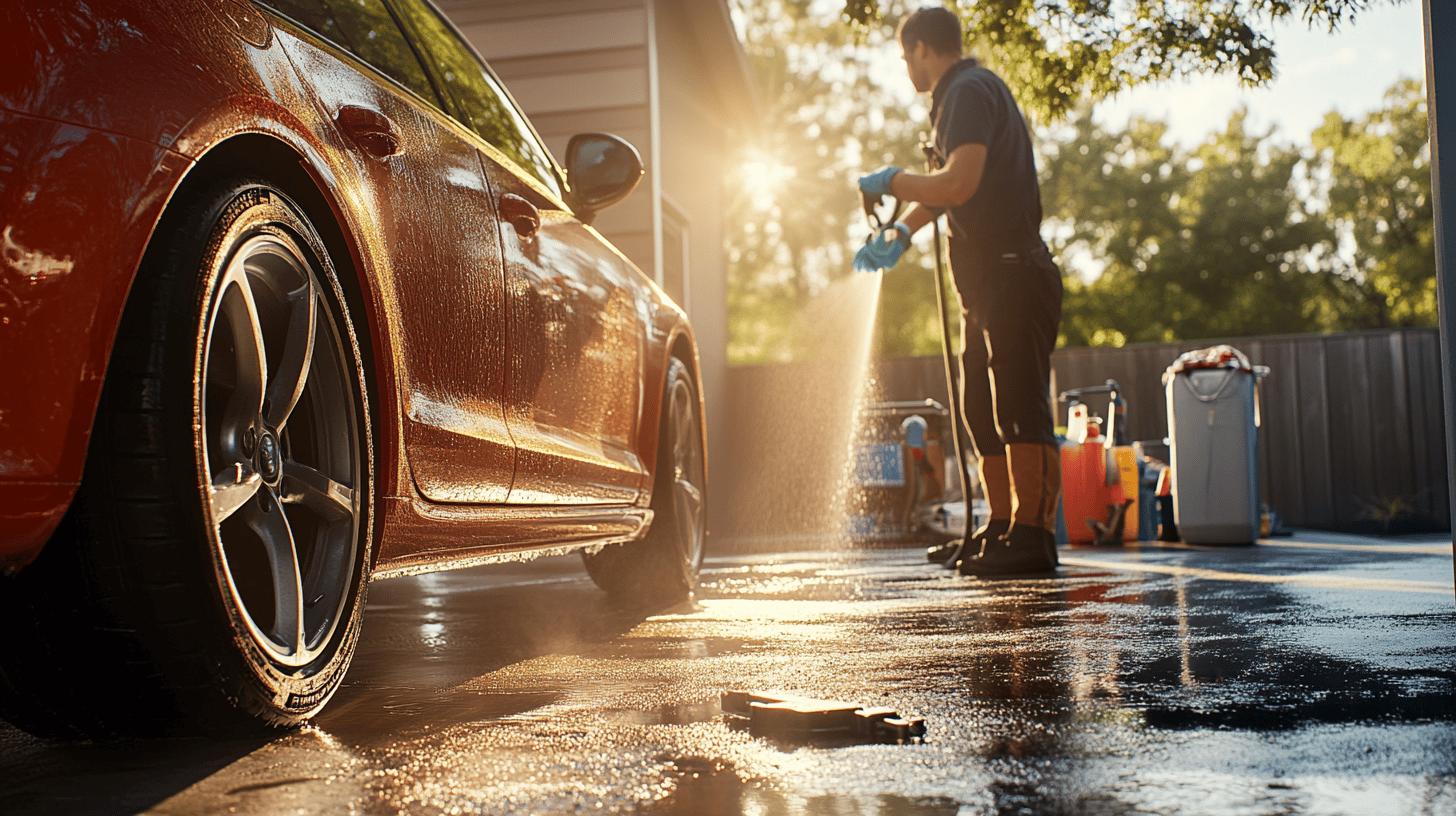Is your car more than just a mode of transport? If so, it’s essential to ensure it stands the test of time. Vehicle neglect can lead to costlier repairs down the road and even compromise your safety. Fortunately, a few proactive steps can significantly extend your car’s lifespan. This guide shares six crucial tips to help you keep your car running smoothly for years. From regular servicing to proper tyre care, we cover the essentials to boost your vehicle’s longevity. Ready to enhance your car’s performance and reliability? Let’s dive in.
Regular Servicing for Extended Vehicle Lifespan
Regular servicing is crucial for extending your car’s life. Scheduling routine maintenance checks every 6 months or 5,000 miles, whichever comes first, helps identify issues early, preventing costly repairs and ensuring optimal performance.
During servicing, several components are typically inspected and maintained. This includes checking and replacing brakes, belts, and hoses, ensuring they are in good condition. Other essential checks involve inspecting fluid levels, tyre condition, and the vehicle’s overall safety systems. By addressing these areas, you can prevent minor issues from escalating into major problems, ensuring your vehicle remains reliable and safe to drive.
- Identifies issues early
- Prevents costly repairs
- Ensures optimal performance
- Maintains vehicle safety
- Prolongs vehicle lifespan
For professional servicing, it’s recommended to visit velocitycarspray.co.uk, where experts can provide comprehensive care for your vehicle, ensuring it stays in top condition for years to come.
Frequent Oil Changes to Maintain Engine Health
Oil plays a vital role in engine maintenance by lubricating moving parts, reducing friction, and dispersing heat. Without proper oil maintenance, an engine can suffer from increased wear and eventual failure.
Frequent oil changes are essential to keep your engine running smoothly. Change the oil every 3,000 to 5,000 miles, following the manufacturer’s recommendations. Using the right type of oil is crucial; conventional, synthetic, and high-mileage oils each have different properties suited for various driving conditions and engine types. Regular oil changes help prevent sludge buildup, which can clog engine parts and reduce efficiency.
| Oil Type | Recommended Change Interval |
|---|---|
| Conventional Oil | Every 3,000 miles |
| Synthetic Oil | Every 5,000 miles |
| High-Mileage Oil | Every 4,000 miles |
Regular oil changes offer numerous advantages, including improved engine performance, extended engine lifespan, and better fuel efficiency. By ensuring your engine remains well-lubricated and free of contaminants, you can avoid costly repairs and maintain your vehicle’s reliability.
Proper Tyre Care for Vehicle Longevity
Proper tyre care can significantly impact your vehicle’s longevity. Tyre rotation and alignment are crucial for even tyre wear and improved handling. Rotate your tyres every 6,000 to 8,000 miles to ensure all tyres wear evenly, extending their lifespan and improving vehicle stability. Proper alignment is equally important; misaligned tyres can lead to uneven wear and tear, compromised handling, and increased fuel consumption. Regularly scheduled rotations and alignments help maintain optimal tyre performance, contributing to a safer and more efficient driving experience.
Maintaining proper tyre pressure is another essential aspect of tyre care. Check tyre pressure monthly and keep it at the manufacturer’s recommended levels. Under-inflated tyres can cause excessive wear, reduce fuel efficiency, and increase the risk of blowouts. Conversely, over-inflated tyres can lead to a harsh ride and uneven tread wear. Ensuring optimal tyre pressure not only extends the life of your tyres but also enhances your vehicle’s fuel efficiency and overall safety by providing better traction and handling.
- Rotate tyres every 6,000 to 8,000 miles
- Check tyre pressure monthly
- Maintain manufacturer-recommended pressure levels
- Ensure proper wheel alignment
- Balance tyres regularly
- Inspect tyres for wear and damage
Proper tyre care is fundamental to vehicle longevity. By diligently rotating, aligning, and maintaining optimal tyre pressure, you can enhance your vehicle’s performance, safety, and efficiency.
Regular Fluid Checks to Prevent Overheating
Regular fluid checks are essential for maintaining your vehicle’s performance and preventing overheating. By inspecting and topping off essential fluids like coolant, brake fluid, transmission fluid, and power steering fluid, you ensure that all parts of your vehicle are well-lubricated and functioning properly. Neglecting these checks can lead to significant damage and expensive repairs.
Several types of fluids need regular inspection to maintain optimal vehicle performance. The coolant, or antifreeze, prevents the engine from overheating by regulating its temperature. Brake fluid is crucial for the hydraulic force needed to operate your braking system effectively. Transmission fluid lubricates the moving parts within the transmission, ensuring smooth gear shifts and preventing wear. Lastly, power steering fluid allows for easier steering by lubricating the power steering system. Each of these fluids plays a vital role in vehicle safety and efficiency.
- Coolant: Prevents engine overheating by regulating temperature.
- Brake Fluid: Essential for the hydraulic force in the braking system.
- Transmission Fluid: Lubricates moving parts within the transmission for smooth shifts.
- Power Steering Fluid: Facilitates easier steering by lubricating the power steering system.
Regular fluid checks can prevent major repairs by catching issues early. For example, low coolant levels can cause the engine to overheat, leading to potential engine failure. Similarly, insufficient brake fluid can result in brake failure, posing a significant safety risk. By ensuring all essential fluids are at optimal levels, you can prolong the life of your vehicle and avoid costly and dangerous breakdowns.

Battery Maintenance for Reliable Starting
Battery maintenance is crucial for ensuring reliable vehicle starting and overall performance. Regularly cleaning the battery terminals and checking the charge can prevent unexpected failures and extend car lifespan. It’s recommended to replace the battery every 3 to 5 years. This proactive approach helps avoid starting issues and ensures consistent vehicle performance, contributing significantly to vehicle longevity.
To maintain your car battery, start by ensuring the terminals are clean and free of corrosion. Use a mixture of baking soda and water to clean the terminals and a wire brush to remove any buildup. Regularly check the battery charge using a voltmeter; a fully charged battery should read around 12.6 volts. If the charge is consistently low, it may be time for a replacement. Proper battery care is essential for preventing breakdowns and maintaining optimal vehicle functionality.
- Clean battery terminals regularly
- Check battery charge with a voltmeter
- Replace battery every 3 to 5 years
- Ensure battery is securely mounted
- Inspect for signs of swelling or leaks
Adopt Responsible Driving Habits
Adopting responsible driving habits is crucial for reducing wear and tear on your vehicle, ultimately extending its lifespan. Erratic driving behaviours such as rapid acceleration and hard braking can significantly stress your car’s mechanical components. By driving smoothly, you not only enhance vehicle longevity but also improve fuel efficiency and reduce the risk of accidents.
Examples of responsible driving practices include maintaining a steady speed, using moderate acceleration, and anticipating stops to avoid sudden braking. Additionally, avoiding overloading your vehicle and adhering to speed limits can further reduce stress on your car’s engine, transmission, and suspension systems. These habits promote a more relaxed driving experience and contribute to the overall health of your vehicle.
- Avoid rapid acceleration
- Use moderate braking
- Maintain a steady speed
- Adhere to speed limits
- Avoid overloading your vehicle
- Anticipate stops and starts
By adopting these responsible driving habits, you can enjoy several benefits. These include prolonged vehicle lifespan, improved fuel efficiency, and a safer driving environment. Responsible driving not only ensures your car remains in good condition but also provides a smoother, more efficient journey, ultimately saving you money on repairs and fuel costs.
Learn more about our car care services to help you maintain your vehicle – Contact us today!
Final Words
In the action, regular servicing, frequent oil changes, proper tyre care, regular fluid checks, diligent battery maintenance, and adopting responsible driving habits collectively ensure the longevity of your vehicle.
Each method plays a pivotal role in extending your car’s life while maintaining optimal performance. It’s these essential measures that safeguard your investment.
Providing not only maintenance but also enhancing your driving experience, following these 6 Essential Ways to Extend the Life of Your Car will also help you avoid costly repairs and ensure safety.
Implement these practices today for a smoother, more reliable journey ahead.
FAQ
11 ways to make your car last forever
A: Making your car last forever involves following a diligent maintenance routine, driving responsibly, and ensuring regular servicing. Key actions include frequent oil changes, proper tyre care, and regular fluid and battery checks.
How to drive a car to make it last longer
A: Adopt responsible driving habits such as avoiding rapid acceleration and hard braking. Smooth driving reduces wear and tear, improves fuel efficiency, and enhances overall vehicle longevity.
Car maintenance for beginners
A: Beginners should start with regular oil changes, tyre rotations, and fluid checks. Consistent maintenance ensures optimal performance and prevents major repairs. Follow the manufacturer’s maintenance schedule for best results.
How to take care of your car
A: Regular servicing, frequent oil changes, proper tyre care, and routine fluid checks are critical. Additionally, adopt responsible driving habits to minimise wear and tear, ensuring long-term vehicle reliability.
Quickest way to wash car
A: The quickest way to wash a car is to rinse it thoroughly, apply car shampoo with a soft sponge, rinse again, and dry using a microfiber cloth. This ensures a clean and scratch-free surface.
Best way to wash a car
A: Wash your car manually using a car shampoo, soft sponge, and microfiber cloth. Avoid automatic car washes that can strip paint or cause scratches. Regular washing removes dirt and contaminants, protecting the paintwork.
How to keep miles down on a car
A: Minimise unnecessary trips, combine errands, and carpool when possible. Using public transport or cycling for short distances can also help keep miles down on your car, extending its lifespan.

